Understanding the Science behind Muscle Steroid Injections
If you get a muscle steroid injection, you’ll use a strong treatment to reduce pain and swelling. These shots work like hormones that your body makes naturally, especially testosterone. They are anti-inflammatory and can reduce pain and stiffness in muscles and joints.
By inserting steroids directly into the painful area, you can better target specific pain points than by taking pills. Higher local concentrations of the drug are possible with this direct method, which can lead to faster and stronger relief. A muscle steroid shot not only eases your pain but also makes it easier for you to move around, allowing you to return to your normal activities faster.
Knowing these things about muscle steroid injections helps you decide whether or not to use them as a treatment.
Common use cases for muscle steroid injections
Muscle steroid injection is often employed to treat various conditions. You may use it to alleviate chronic pain in muscles and joints. It’s also beneficial for managing autoimmune diseases like rheumatoid arthritis. This treatment effectively reduces inflammation, helping you regain mobility and comfort quickly. Athletes and individuals suffering from sports injuries find muscle steroid injections useful to accelerate healing. These injections offer targeted relief, making them a valuable tool in pain management strategies. Additionally, they can be used to treat conditions such as bursitis and tendinitis, providing quick and efficient relief. Consider this treatment option if oral medications haven’t been effective.
Mechanism of Action
Muscle steroid injection works by targeting inflammation at the cellular level. When administered, these injections reach the muscle tissue and interact with nuclear steroid receptors within the cells. This interaction disrupts the inflammatory process, thereby reducing pain and swelling. You will experience relief as the medication inhibits certain chemicals that trigger inflammation. Muscle steroid injections effectively treat many chronic conditions by blocking these inflammatory pathways. Additionally, they suppress the immune response, making them beneficial for autoimmune disorders like rheumatoid arthritis. This dual action allows for more comprehensive and lasting relief of symptoms.
How muscle steroid injections work at a cellular level
When you receive a muscle steroid injection, the active ingredients reach the targeted muscle cells. The steroids bind to specific receptors known as androgen receptors within these cells. This binding process allows the steroids to penetrate the cell nucleus. Once inside, they interact with the cell’s DNA, triggering protein synthesis. This activity promotes cell growth and muscle repair. The steroids help reduce muscle inflammation and accelerate injury recovery by enhancing protein production. Additionally, this cellular interaction helps decrease pain by minimizing inflammatory responses. Consequently, you experience improved muscle function and relief from chronic conditions more effectively.
Effects of muscle steroid injections on inflammation and pain relief
Muscle steroid injections are effective in reducing inflammation and alleviating pain. When administered, the steroids mimic the body’s natural hormones to decrease inflammatory responses at the injection site. It leads to reduced redness and swelling, providing relief from conditions like arthritis or muscle injuries. Consequently, muscle steroid injections minimize pain, making it easier to move and perform daily activities without discomfort. Furthermore, directly targeting the inflammation, these injections can offer quicker pain relief than oral medications. Overall, muscle steroid injections are a practical solution for those dealing with chronic pain and inflammation.
Types of Steroids Used
Muscle steroid injection typically involves several types of steroids, the most common of which are corticosteroids and anabolic steroids. Corticosteroids, like prednisone and methylprednisolone, are often used to reduce inflammation and alleviate pain. They mimic the body’s natural hormones, effectively reducing redness and swelling at the injection site.
On the other hand, anabolic steroids, such as testosterone derivatives, are used for muscle growth and recovery. These are less common in medical settings but still noteworthy. Each type of steroid has unique benefits and risks, making it crucial to consult your healthcare provider for personalized advice. Understanding the differences helps you make informed decisions regarding treatment options.
Different types of steroids are commonly used in muscle steroid injections.
In the context of muscle steroid injection, you will mainly encounter corticosteroids and anabolic steroids. Corticosteroids, such as prednisone and dexamethasone, are usually prescribed for reducing inflammation and alleviating pain. These steroids mimic the anti-inflammatory effects of hormones naturally produced by your adrenal glands.
Anabolic steroids, like testosterone and its derivatives, are primarily used to promote muscle growth and improve recovery times. While not typically used in conventional medical treatments, they still play a significant role in specialized medical therapies. Each type has distinct applications and varying levels of efficacy. Choosing the right type depends on your medical needs and existing conditions. Always consult your healthcare provider to determine which option is best for you.
Benefits and risks associated with each type of steroid
Muscle steroid injections can offer significant benefits depending on the type of steroid used. Corticosteroids are highly effective in reducing inflammation and providing pain relief. They act quickly, making them suitable for acute conditions. However, overuse can weaken bone structure and suppress immune function. On the other hand, anabolic steroids promote muscle growth and improve recovery times. These are beneficial for conditions requiring muscle regeneration. Yet, prolonged usage can result in hormonal imbalances, liver issues, and cardiovascular concerns.
Choosing the right steroid depends on your medical needs and health conditions. Consulting a healthcare professional will help you weigh the benefits and risks effectively. Always adhere to prescribed dosages and monitor for adverse effects to ensure safe usage.
Administration and Dosage
Proper administration is crucial when considering muscle steroid injection. You’ll want to get these injections from a qualified healthcare professional. They are usually given in a hospital clinic or a GP’s office. The common methods include intramuscular injections, where the steroid is injected directly into the muscle.
Dosage depends on several factors. Your healthcare provider will consider your medical condition, age, and overall health. A low initial dose is recommended to assess how your body reacts. You should also follow up regularly with your doctor to monitor any side effects or necessary adjustments in your dosage.
Adhering to these guidelines can maximize the benefits while minimizing the risks associated with muscle steroid injections. Always consult your healthcare provider for personalized advice.
Proper administration techniques for muscle steroid injections
When considering muscle steroid injection, you should always prioritize safety and precision. Get these injections from a qualified healthcare professional. The most common method is an intramuscular injection, where the needle is inserted directly into the muscle tissue. Before the injection, your skin should be cleaned with antiseptic to reduce infection risks.
Your healthcare provider will likely ask you to remain still during the procedure to ensure accurate placement. They may also use an ultrasound to guide the needle, ensuring it reaches the correct spot. Proper needle disposal and adherence to sterile techniques are crucial. Follow post-injection instructions closely to monitor for adverse reactions and maintain optimal results.
Factors influencing the dosage of muscle steroid injections
The dosage of muscle steroid injection hinges on multiple factors. Your age is a primary consideration, as older individuals might have different dosage needs than younger ones. The severity of your condition also plays a significant role; more intense ailments typically warrant higher doses.
Additionally, your general health and concurrent medications can influence dosage requirements. Pre-existing medical conditions, such as diabetes or liver issues, may necessitate a modified dose for safety reasons.
Your body’s response to initial treatments often guides dosage adjustments as well. Finally, the specific type of steroid used can dictate the appropriate amount, with some steroids requiring a precise dosage to achieve optimal results while minimizing side effects. Understanding these factors ensures personalized and effective treatment.
Conclusion
Muscle steroid injections offer targeted relief for inflammation and pain. They work by reducing inflammation and dampening the immune response. It would help if you weighed the benefits against the potential risks, which include severe side effects. These injections are unsuitable for everyone, so consult your healthcare provider. It’s essential to follow proper administration techniques to achieve optimal results. Remember, the type and dosage of the steroid will vary based on individual needs and conditions. Understanding these factors can guide you toward a more effective treatment plan. Make informed decisions to enhance your health and well-being through muscle steroid injections.






